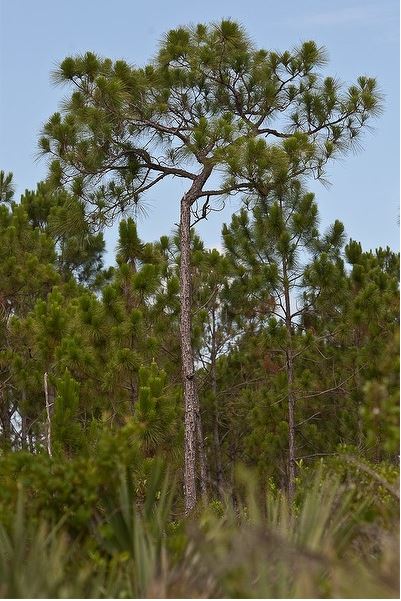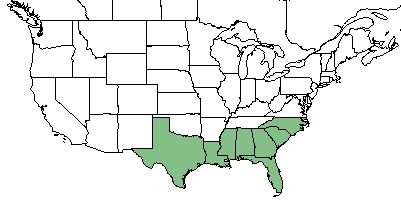Difference between revisions of "Pinus elliottii"
| Line 37: | Line 37: | ||
<!--===Seed bank and germination===--> | <!--===Seed bank and germination===--> | ||
===Fire ecology=== <!--Fire tolerance, fire dependence, adaptive fire responses--> | ===Fire ecology=== <!--Fire tolerance, fire dependence, adaptive fire responses--> | ||
| − | ''P. elliottii'' is fire resistant, but has a low fire tolerance. <ref name= "USDA Plant Database"/> | + | ''P. elliottii'' is fire resistant, but has a low fire tolerance. <ref name= "USDA Plant Database"/> ''P. elliottii'' var. ''densa'' has thick bark as an adult and a 'grass' stage as a juvenile that offer resistance to fire damage. <ref name= "Abrahamson 1996"> Abrahamson, W. G. and C. R. Abrahamson (1996). "Effects of Fire on Long-Unburned Florida Uplands." Journal of Vegetation Science 7(4): 565-574. </ref> |
<!--===Pollination===--> | <!--===Pollination===--> | ||
<!--===Use by animals===--> <!--Herbivory, granivory, insect hosting, etc.--> | <!--===Use by animals===--> <!--Herbivory, granivory, insect hosting, etc.--> | ||
Revision as of 15:36, 18 June 2018
Common name: slash pine [1]
| Pinus elliottii | |
|---|---|

| |
| Photo by John B hosted at Bluemelon.com/poaceae | |
| Scientific classification | |
| Kingdom: | Plantae |
| Division: | Magnoliophyta - Flowering plants |
| Class: | Magnoliopsida - Dicots |
| Order: | Pinales |
| Family: | Pinaceae |
| Genus: | Pinus |
| Species: | P. elliottii |
| Binomial name | |
| Pinus elliottii Engelm. | |

| |
| Natural range of Pinus elliottii from USDA NRCS Plants Database. | |
Contents
Taxonomic Notes
Synonyms: P. elliottii var. elliottii; P. heterophylla
Varieties: none
Description
P. elliottii is a perennial tree of the Pinaceae family native to North America. [2]
Distribution
P. elliottii is found along the southeastern coast of the United States from Texas to North Carolina. [2]
Ecology
Habitat
P. elliottii proliferates in wet pine flatwoods and maritime forests. [1]
Fire ecology
P. elliottii is fire resistant, but has a low fire tolerance. [2] P. elliottii var. densa has thick bark as an adult and a 'grass' stage as a juvenile that offer resistance to fire damage. [3]
Conservation and Management
Cultivation and restoration
Photo Gallery
References and notes
- ↑ 1.0 1.1 Weakley, A. S. (2015). Flora of the Southern and Mid-Atlantic States. Chapel Hill, NC, University of North Carolina Herbarium.
- ↑ 2.0 2.1 2.2 USDA Plant Database https://plants.usda.gov/core/profile?symbol=PIEL
- ↑ Abrahamson, W. G. and C. R. Abrahamson (1996). "Effects of Fire on Long-Unburned Florida Uplands." Journal of Vegetation Science 7(4): 565-574.